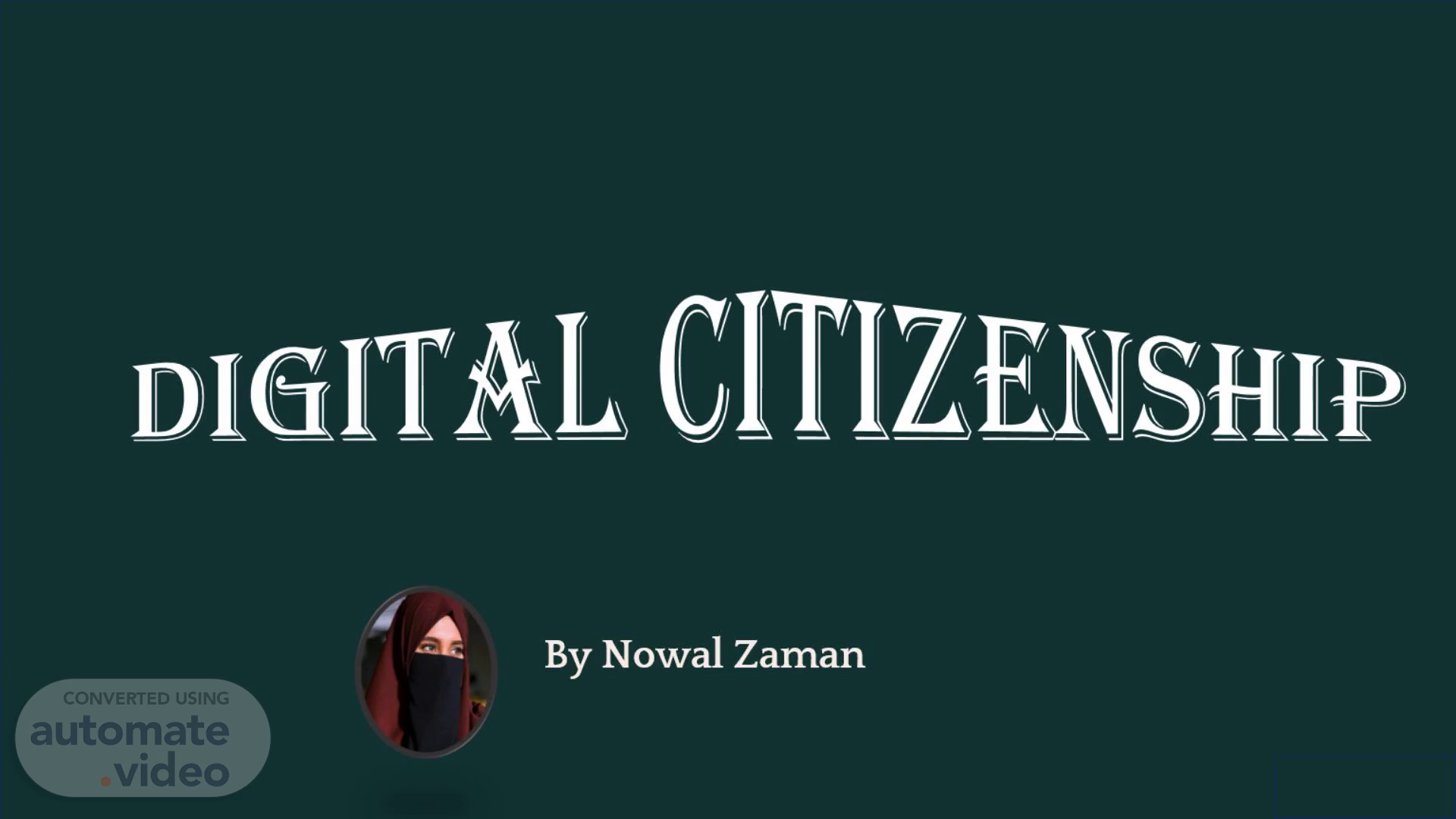Scene 1 (0s)
[Audio] "Hello everyone! Today, we're going to talk about a very important topic – Digital Citizenship. Digital citizenship is about being a responsible and ethical member of the digital world, and it includes a set of skills, knowledge, and attitudes that help us navigate technology and the internet safely and effectively. Let's dive into what that looks like.".
Scene 2 (20s)
[Audio] "Hello class! Today, we'll be learning about an important concept called Digital Citizenship. Digital Citizenship refers to using technology and the internet responsibly and ethically. Being a good digital citizen means having the skills, knowledge, and attitudes to navigate the digital world safely and effectively. It involves behaviors and actions that reflect responsibility and ethical choices online.".
Scene 3 (41s)
[Audio] "First, let's talk about the key aspects of digital citizenship. "There are several key aspects of being a good digital citizen. First, and foremost respecting others online is essential. This means recognizing and protecting the rights and privacy of others. Next, we need to protect our own personal information to maintain our digital identity safely. And, of course, avoiding cyberbullying and online harassment. Cyberbullying is when people post hurtful or derogatory comments online, which can harm the mental health of the victim. As responsible digital citizens, we must avoid and stand against this behavior." These behaviors help create a positive online community and protect ourselves and others.".
Scene 4 (1m 24s)
[Audio] "Let's talk about why it's essential to read privacy policies and terms of use. These documents help us understand how websites collect and use our information. They explain our rights and responsibilities and help us avoid potential privacy risks. Knowing these terms allows us to make informed choices about our online activities." We should also stay aware of biased or controversial information and know how to evaluate sources critically." Taking the time to read these policies can keep us informed and safe.".
Scene 5 (1m 54s)
[Audio] "Next, let's talk about keeping ICT equipment safe. Computer safety includes two areas: physical and software safety. "To keep our devices safe, here are some simple but important steps: Keep software and operating systems updated with the latest security patches. Use strong, unique passwords and enable two-factor authentication. Be cautious with email attachments and links from unknown senders. Keep personal information private and be careful about what's shared online. Use reputable antivirus software to protect against malware. And, when disposing of old devices, securely wipe the hard drives to protect data.".
Scene 6 (2m 33s)
[Audio] "Another important aspect of digital citizenship is understanding copyright. Copyright protects the creator's rights to their work, such as music, books, or software. Copyright infringement happens when someone uses this work without permission, which is both illegal and unethical." "Plagiarism, a type of copyright infringement, occurs when someone uses another person's ideas or work without giving credit. Digital piracy is also an issue – it involves sharing or using copyrighted digital material without permission. To be responsible digital citizens, we need to avoid both plagiarism and digital piracy.".
Scene 7 (3m 11s)
[Audio] "Using information ethically means getting permission when needed, purchasing copyrights, or at the very least, citing the original source. Even when we rephrase content, credit must still go to the original author.".
Scene 8 (3m 27s)
[Audio] "Understanding and following the laws that govern online behavior is also a part of digital citizenship. A good digital citizen uses technology to create positive change, contributes to the digital community, and stays aware of biased or controversial information.".
Scene 9 (3m 47s)
[Audio] Talking about importance of " ICT lab rules Following is essential: "To keep our devices safe, We should: Keep software and operating systems updated with the latest security patches. Use strong, unique passwords and enable two-factor authentication. Be cautious with email attachments and links from unknown senders. Keep personal information private and be careful about what's shared online..
Scene 10 (4m 13s)
[Audio] "Using ICT devices can cause health issues like eyestrain, poor posture, or social isolation. Too much screen time can lead to physical inactivity and stress. So, remember to take regular breaks and use devices mindfully.".
Scene 11 (4m 31s)
[Audio] That's all for today Now, let's all aim to be responsible digital citizens! Thank you,.
